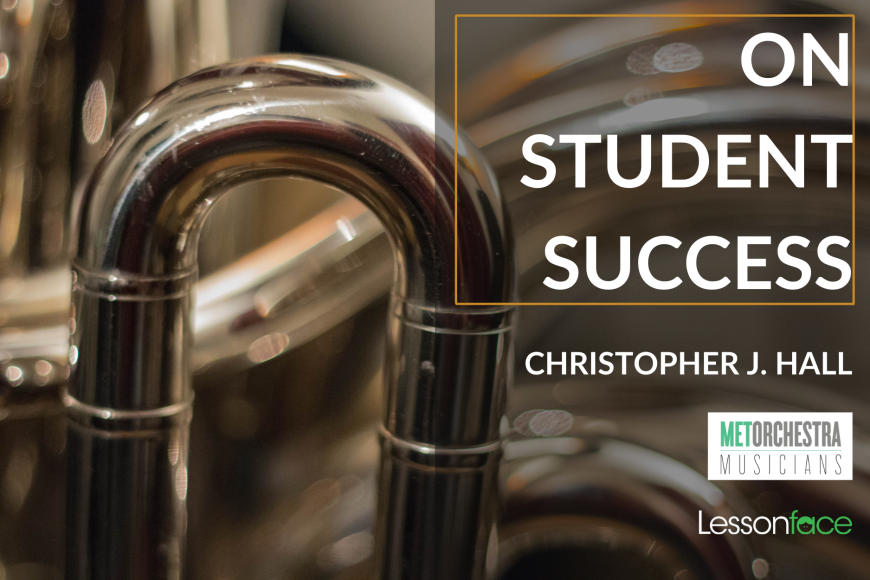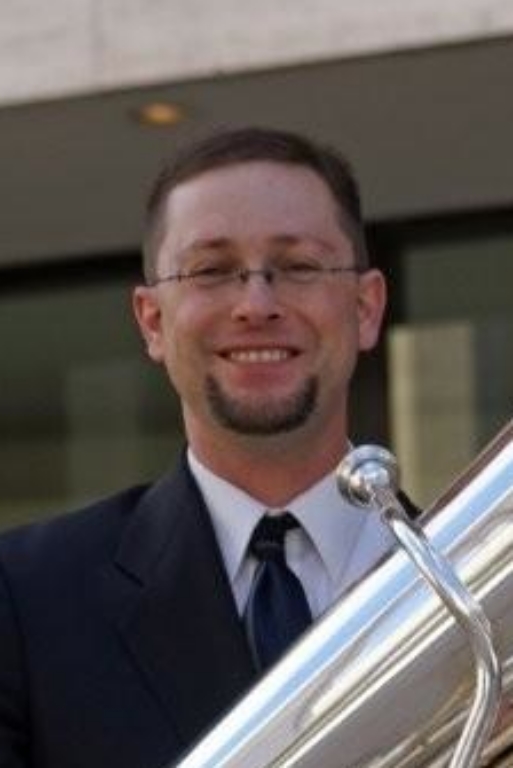On Student Success — MET Orchestra Tubist Christopher J. Hall

After a conversation with Christopher J. Hall, Principal Tuba of the MET Orchestra since 1996, it would seem that when it comes to becoming a professional musician there are certainly particular actions that students can take; but it can essentially be pared down to one basic principle. Be the best you can be.
BE THE BEST YOU CAN BE
So how does a serious student get there? Hall recommends finding and studying with the best teachers of one’s instrument. Look for those with a proven track record of having students who land jobs. Researching teachers and programs allows a student to make better choices to help them further their career.
“Study in the best university or conservatory setting that you can,” states Hall. “Look for a place where there’s a good amount of competition, a very well-rounded music school.” Finding the right teachers and setting will do much to help a student reach their full potential.
THE IMPORTANCE OF LISTENING
In this day and age where the internet connects us in ways we couldn’t have imagined before, there are resources everywhere for students to actively utilize. For the dedicated student, a whole world of research and observation awaits. We now have easy access to recorded performances, both in video and audio form, access that was far more limited and difficult in previous decades. And we can learn much from these amazing resources.
Hall recommends that students make it a priority to listen to music — and listen to a lot of it. “Study scores, learn to read alto clef. You want to listen to different interpretations of the same pieces.”
Listening to different interpretations gives us a chance to focus on the true musicality behind individual works and hear the personality of each group. It’s easy to forget that at its simplest form, music is an incredible means of communication; valuing the differences between performances helps remind us that music is still a living art form.
MAXIMIZE YOUR POTENTIAL — EFFICIENCY IS KEY
“When it comes to practicing, it’s important to take enough breaks so that you’re not stressing yourself out, but make sure you’re still getting something done,” states Hall.
An effective practice session, and growth as a musician, is fueled by efficiency and self-awareness. Adapt to your needs. “You need to do what works for you. You want to get to the point where you’re really efficient with your air and your buzz.”
What works for one person may not perfectly work for another; the larger goal is to create music with our bodies in service to that.
For tuba specifically, good posture and efficiency of air are paramount. However, general self-care, enough rest and a healthy lifestyle, are important considerations as well. And, through all of that, our mindset becomes the master of the whole equation.
“You need to visualize what you want to sound like. Ask yourself ‘how do I want to sound?’ Think first about this and let everything else be in service to that goal.”
Imagination plays such a strong role in performance; your mindset may be your best tool at any given time. Rather than letting your mind get in the way with judging one’s performance, use that same mental strength to picture each moment of playing and the sound you want to create.
To reach one’s full potential, efficiency, self-awareness, self-care, and visualization all come together as pieces of the puzzle to help each student “be the best you can be.”
If you’d like to hear more wisdom from these and other MET Orchestra Musicians or audition for an upcoming Master Classes, be sure to check out the upcoming and recorded MET Orchestra Musicians Master Classes.





